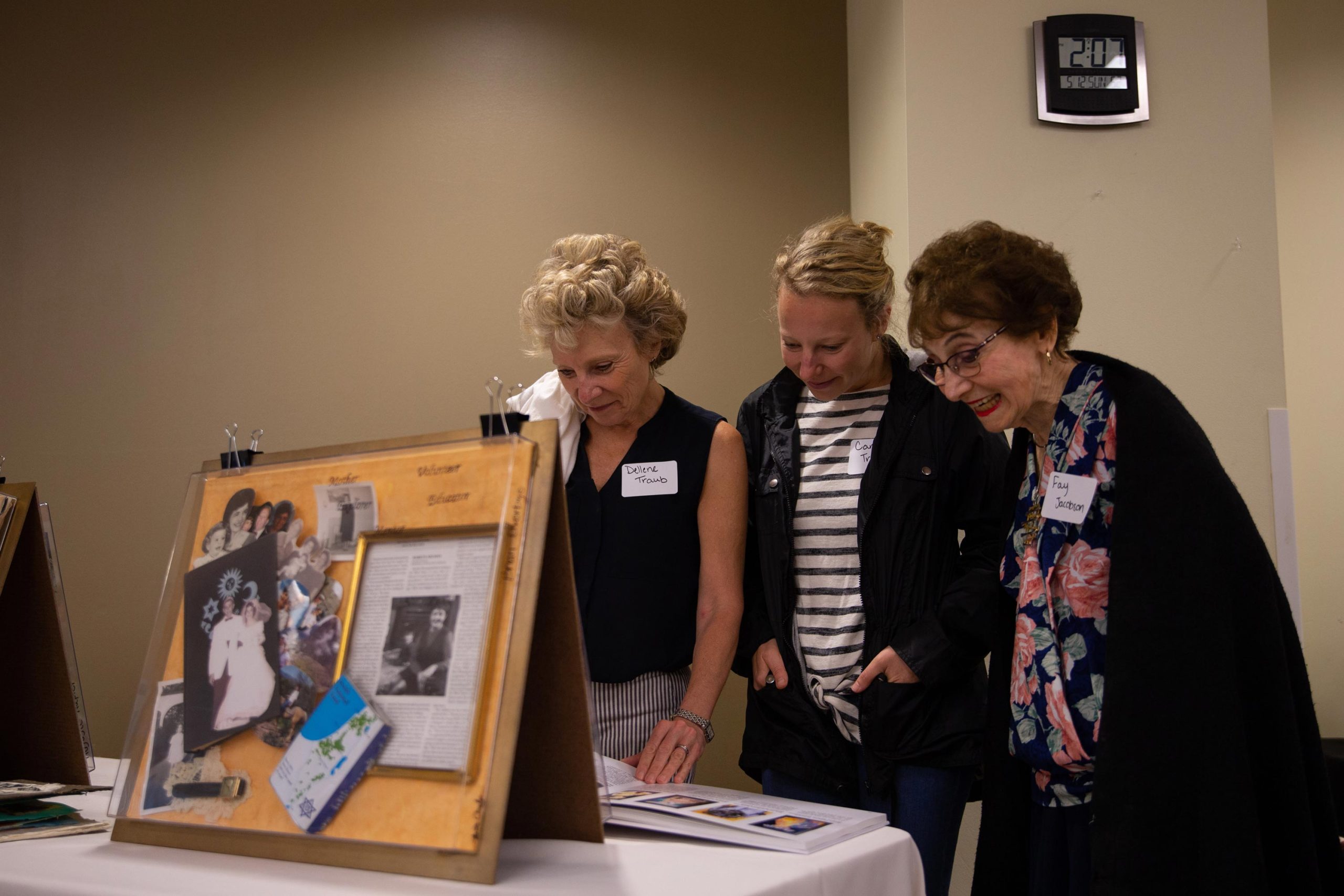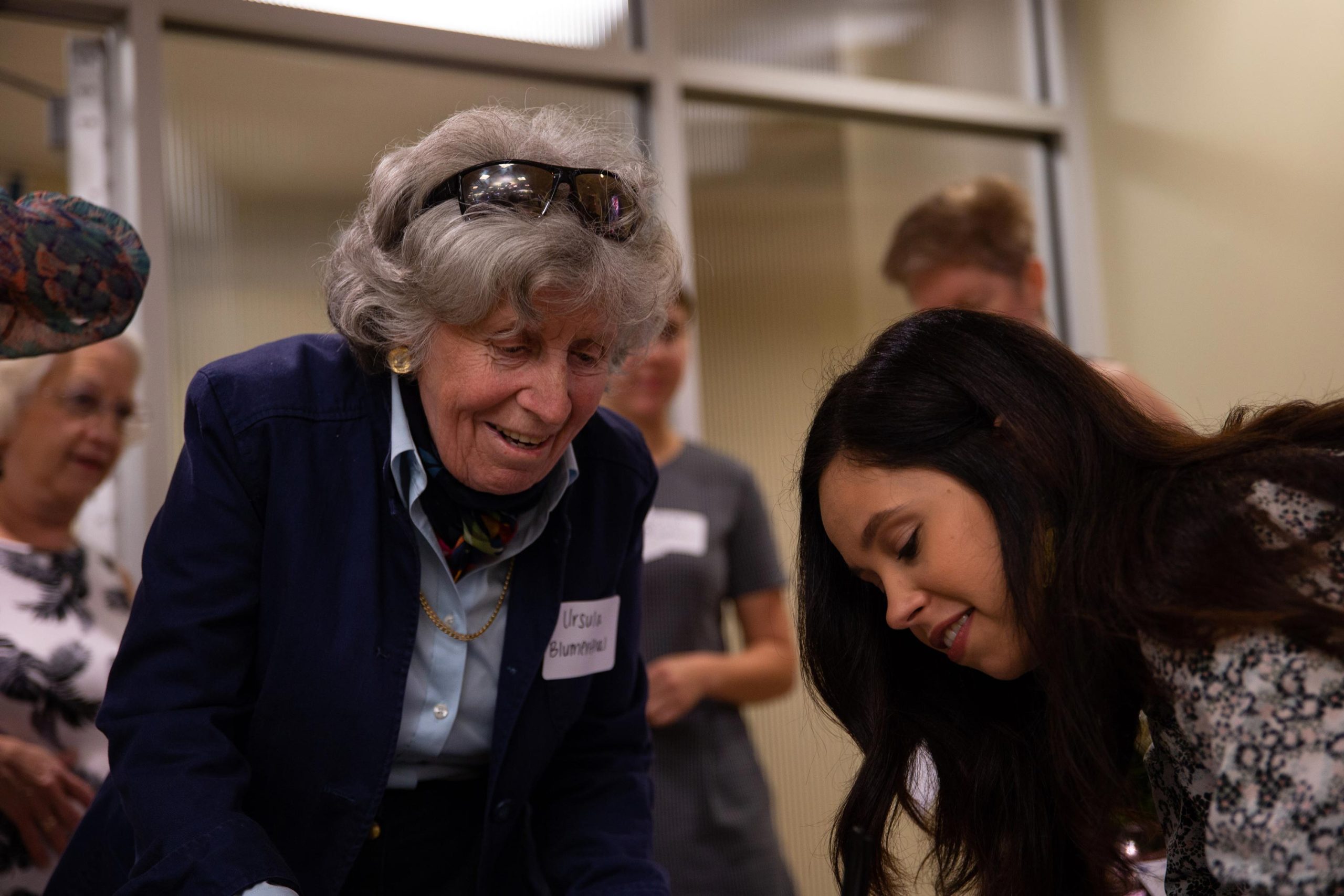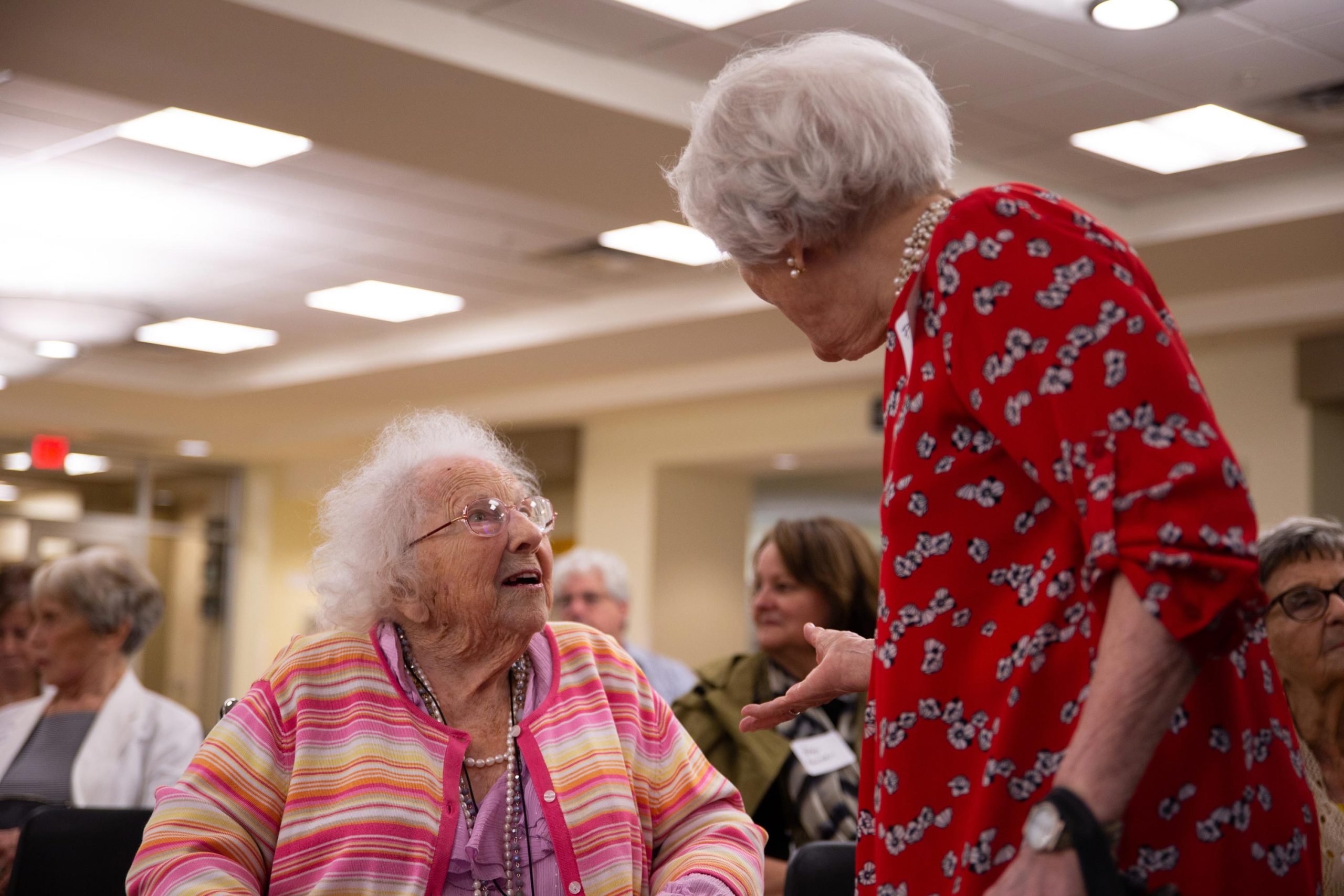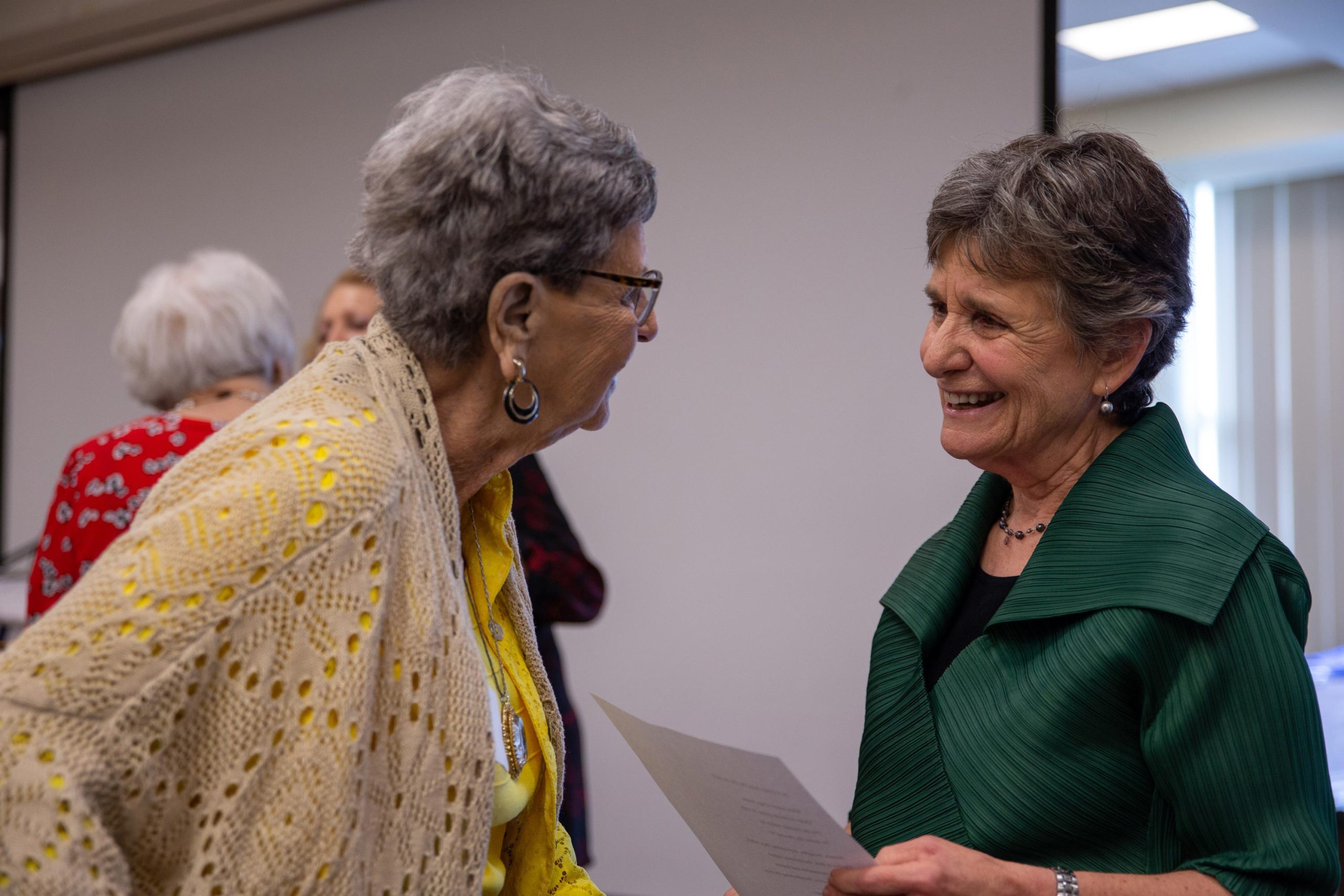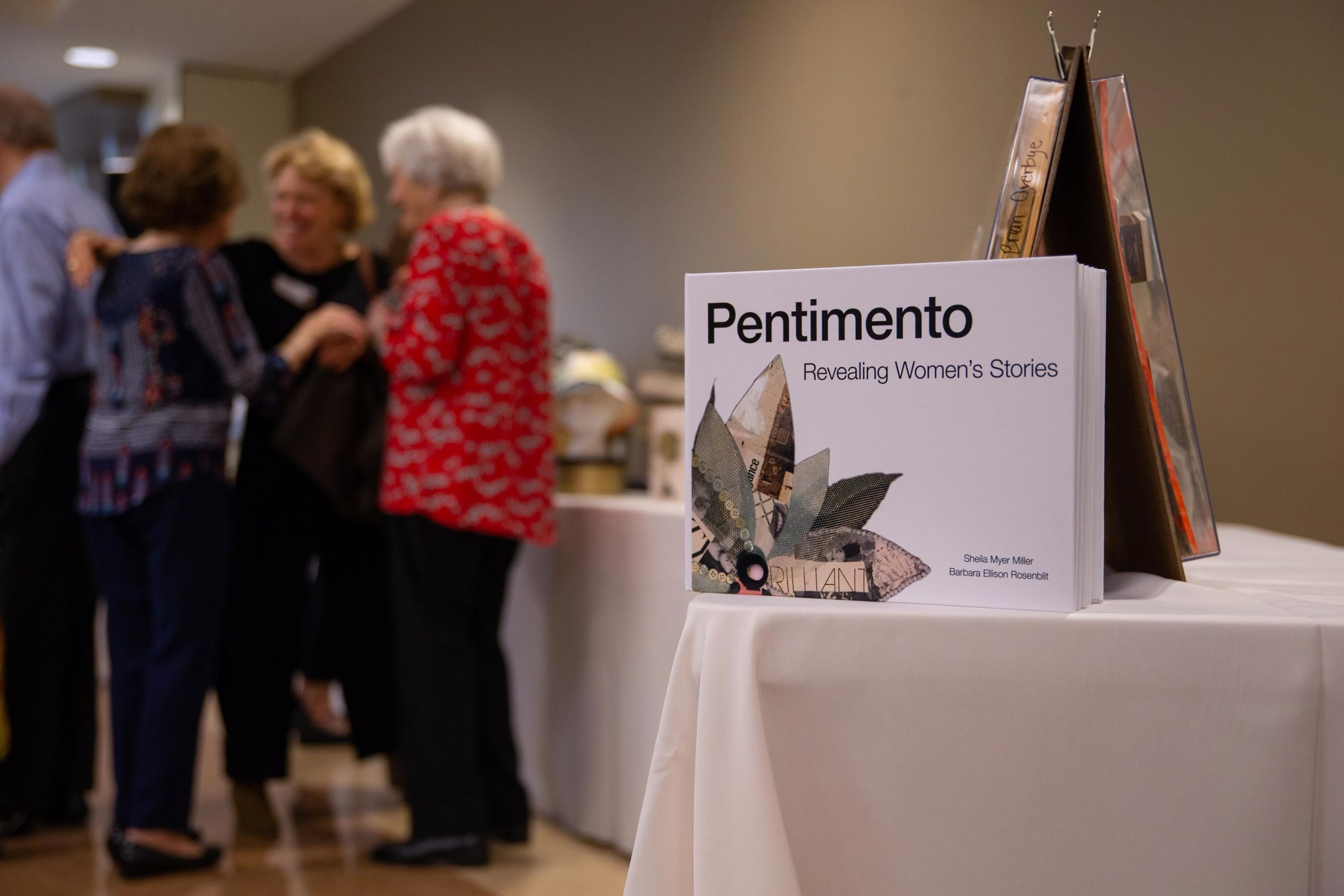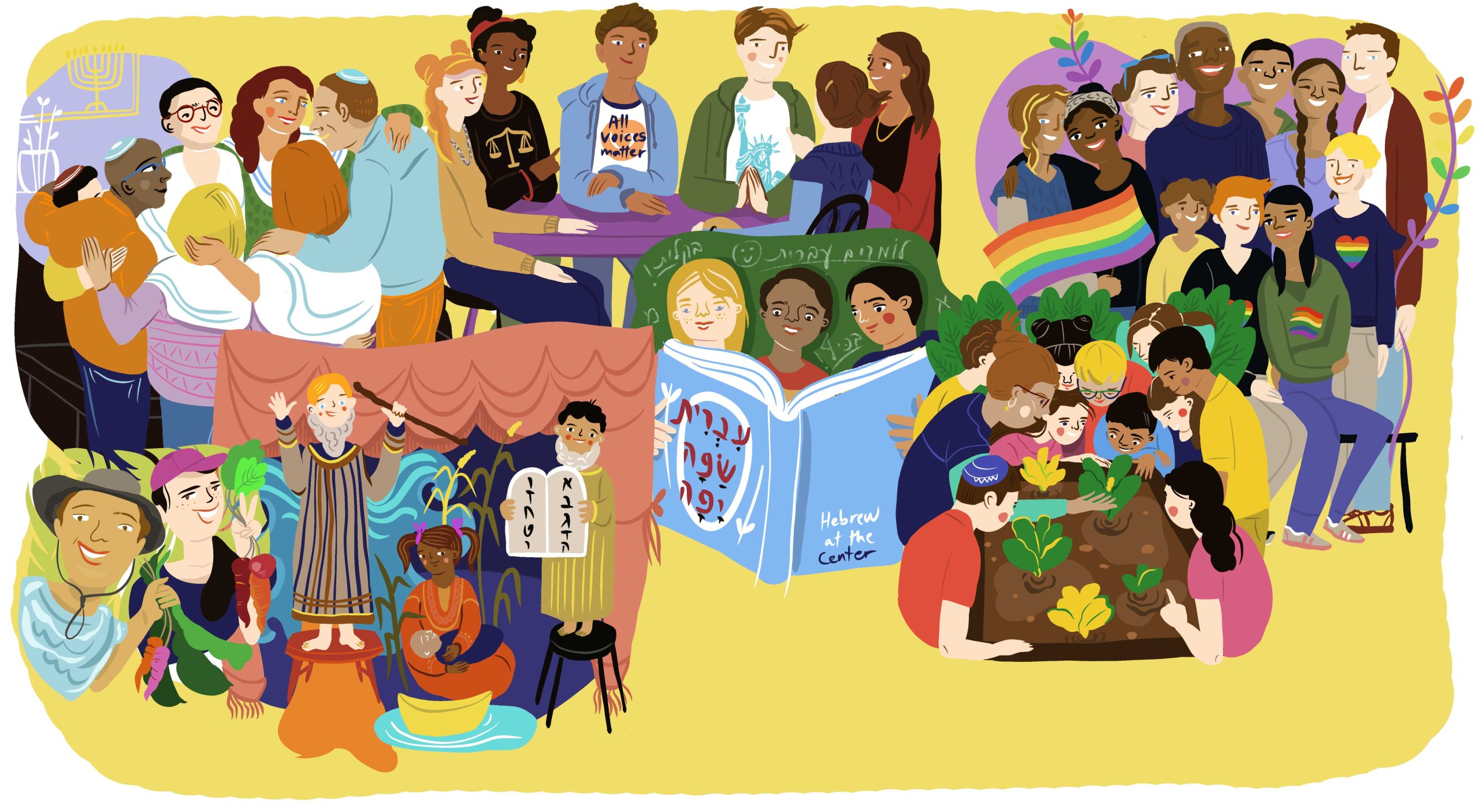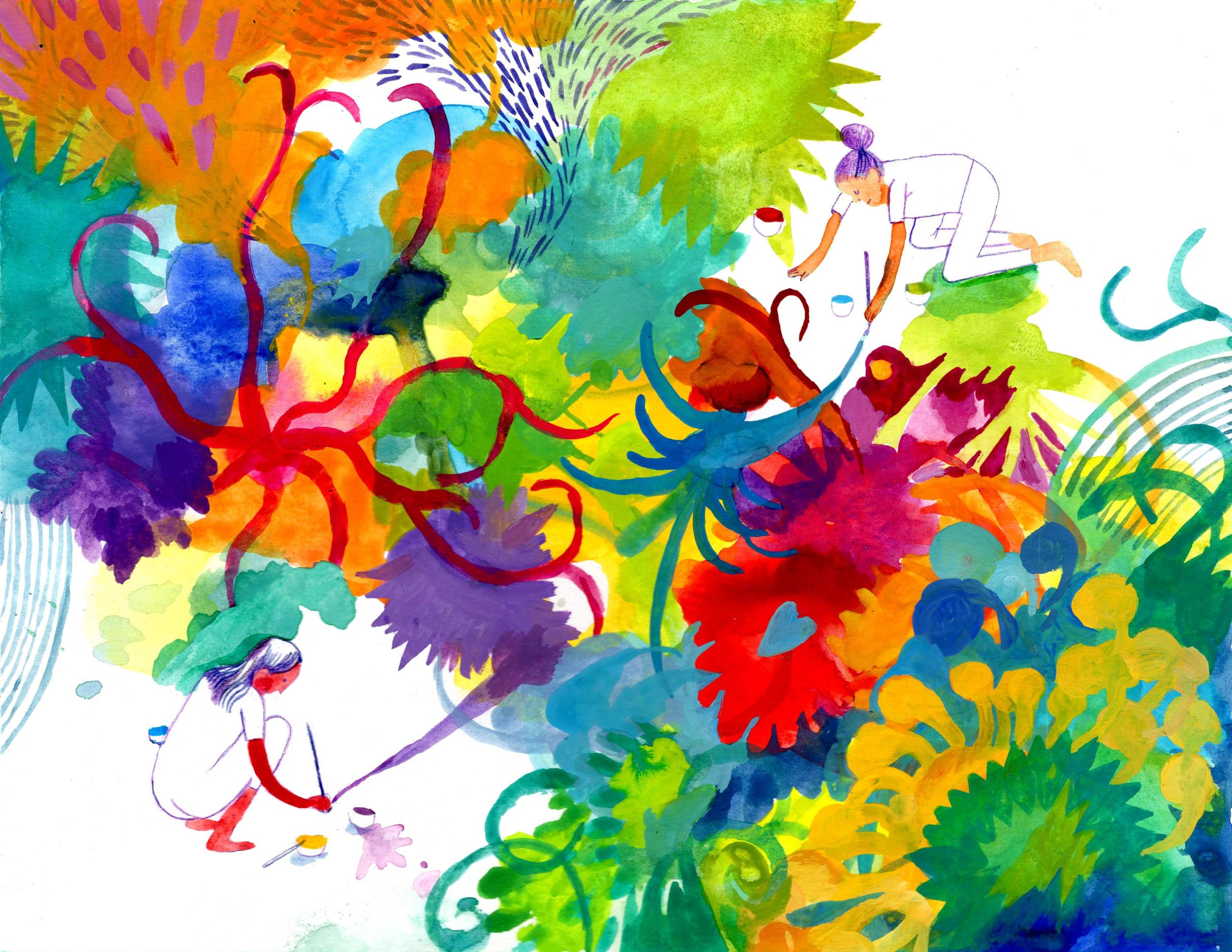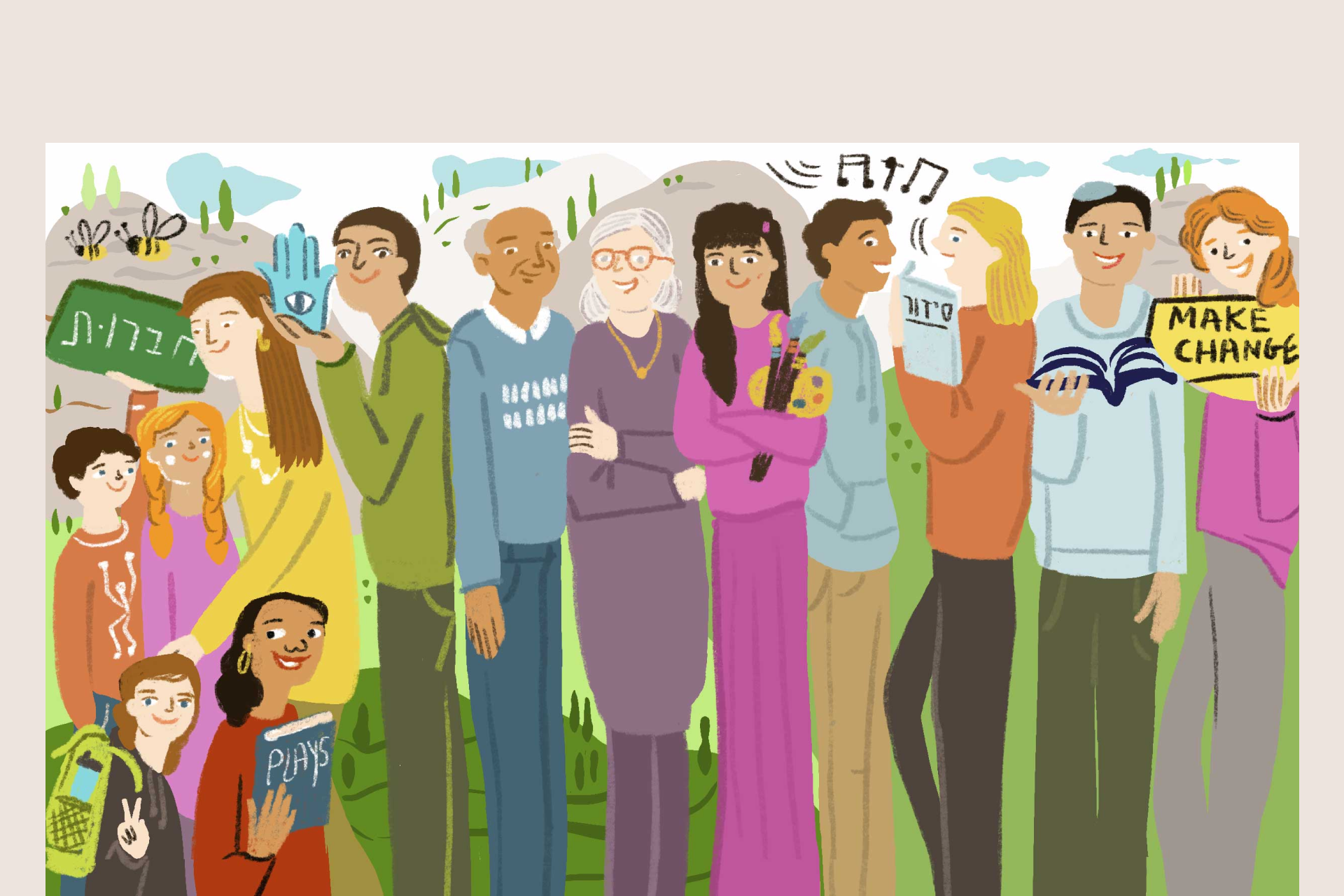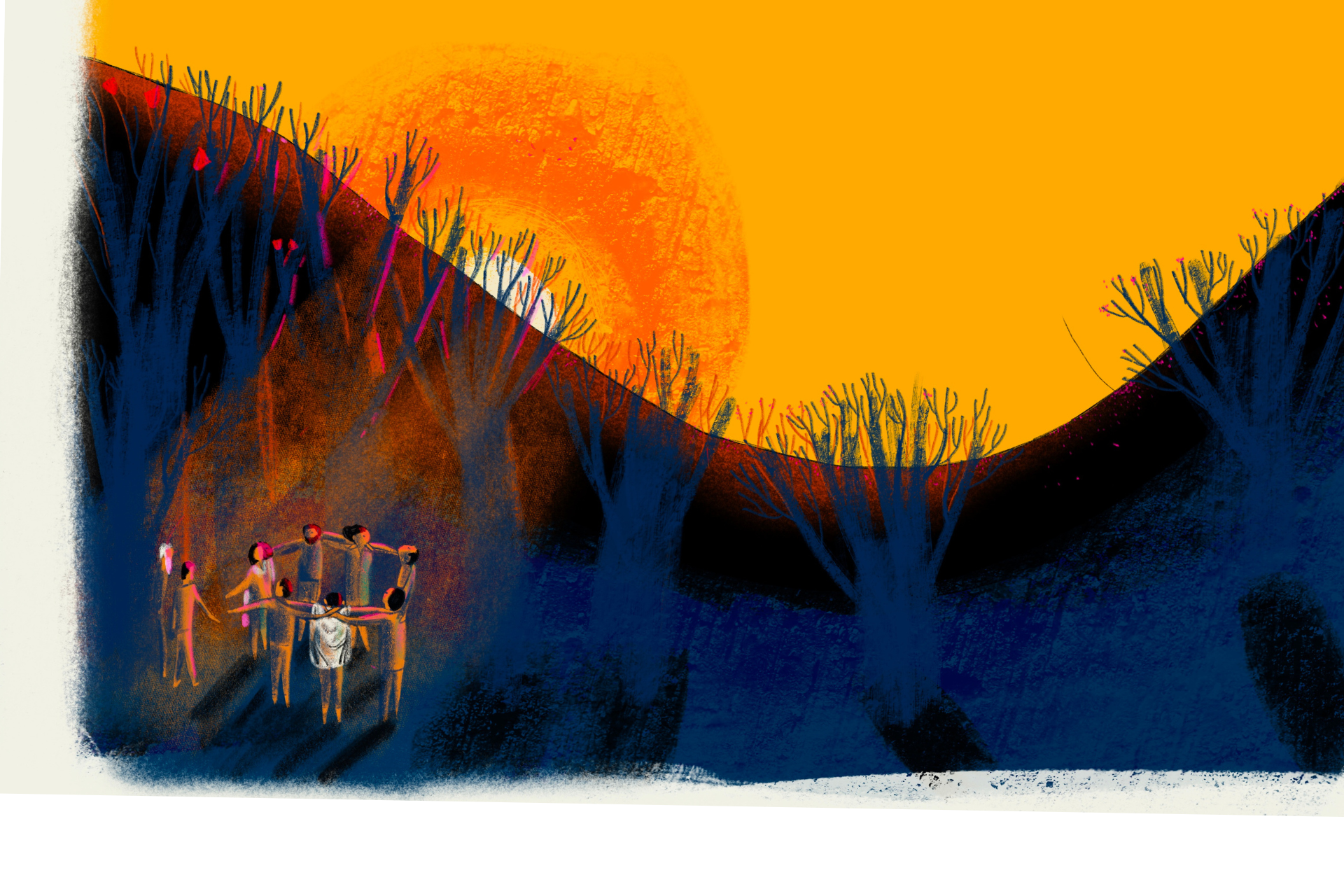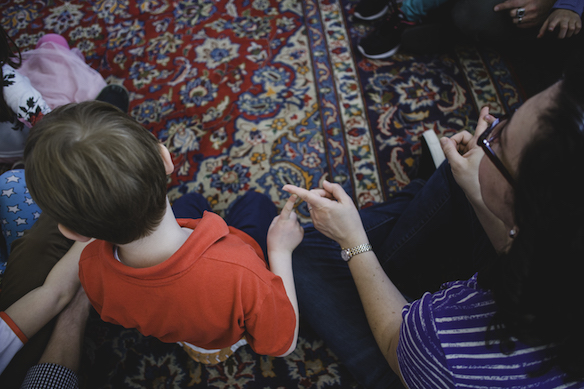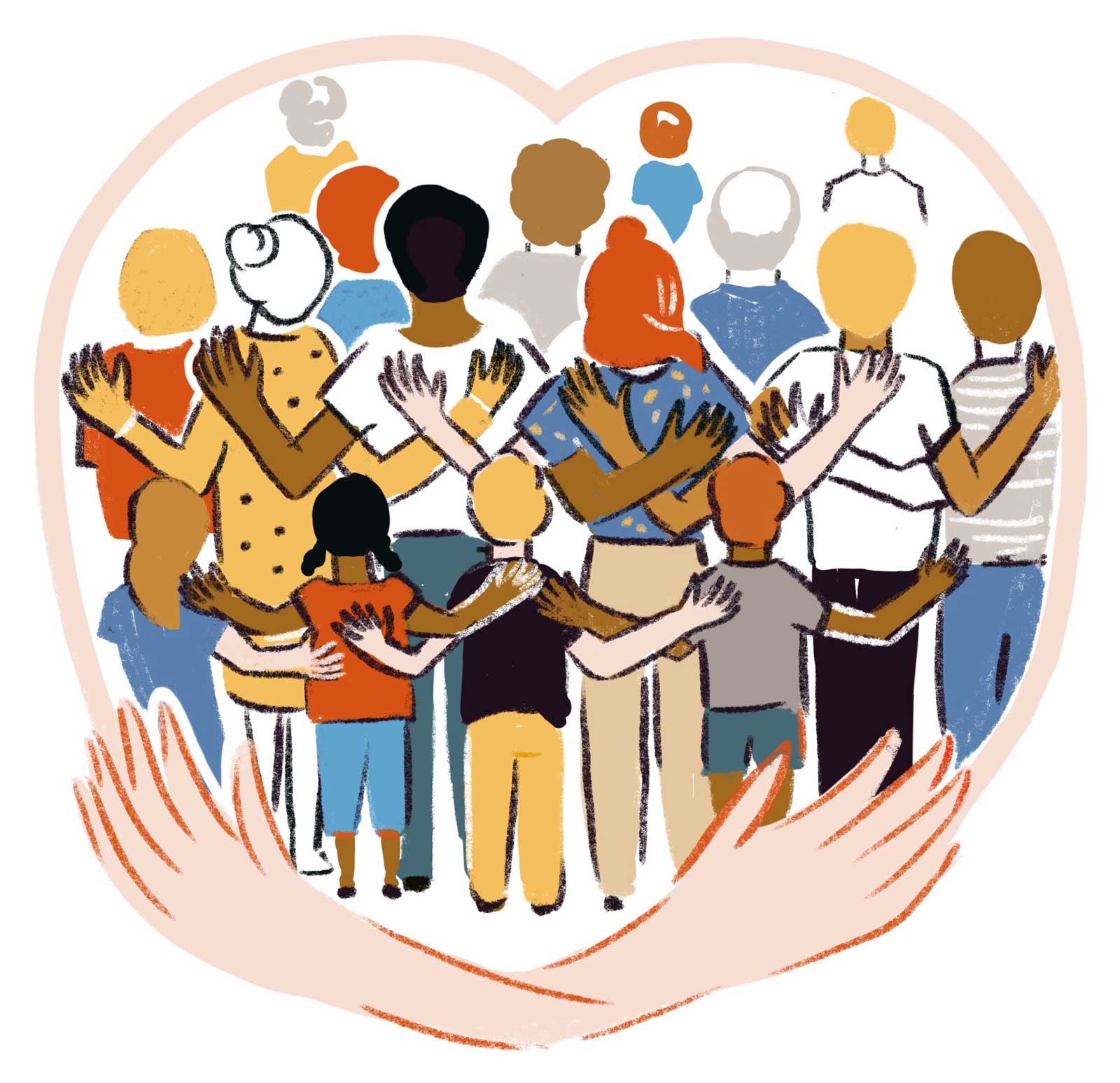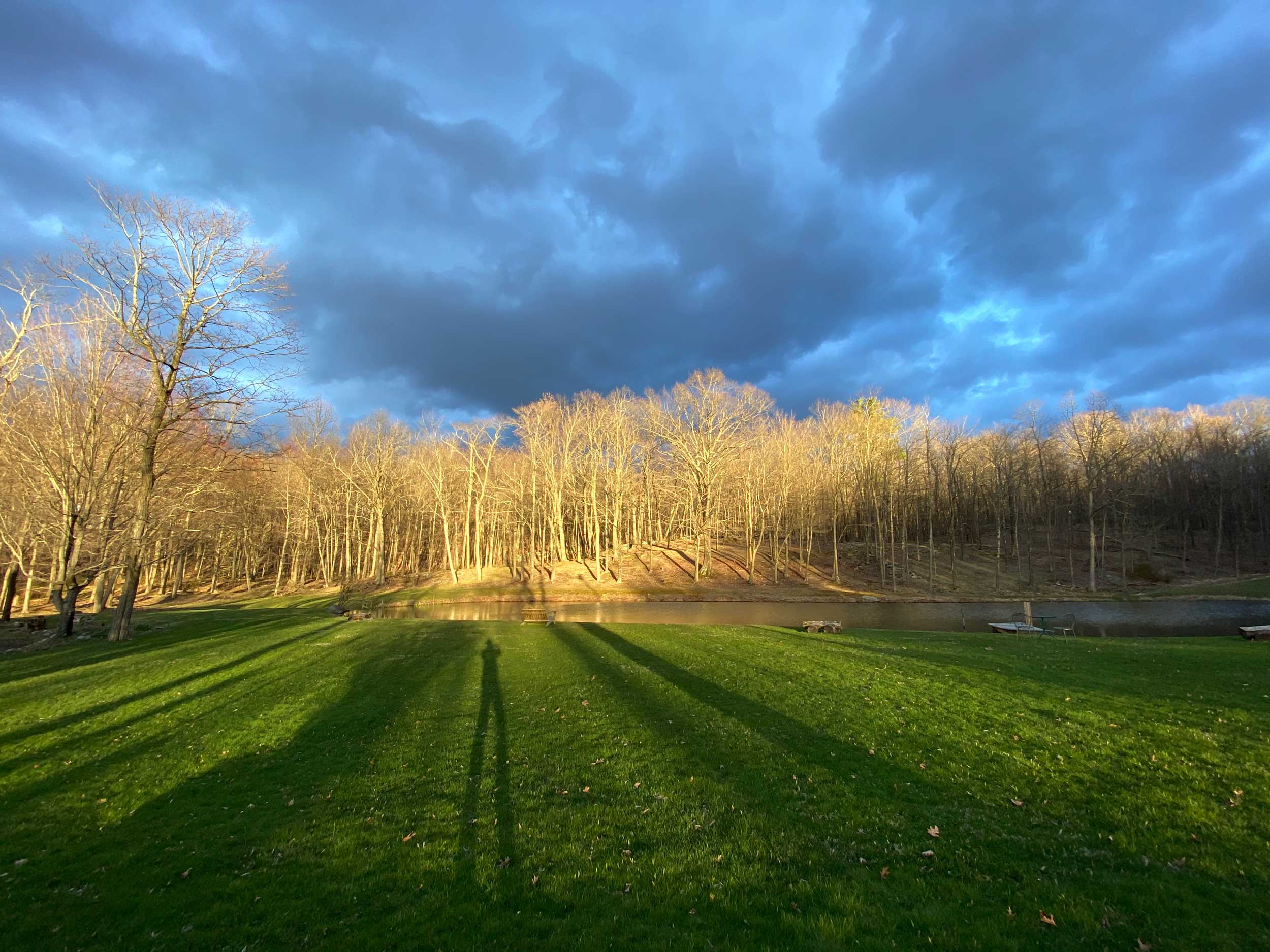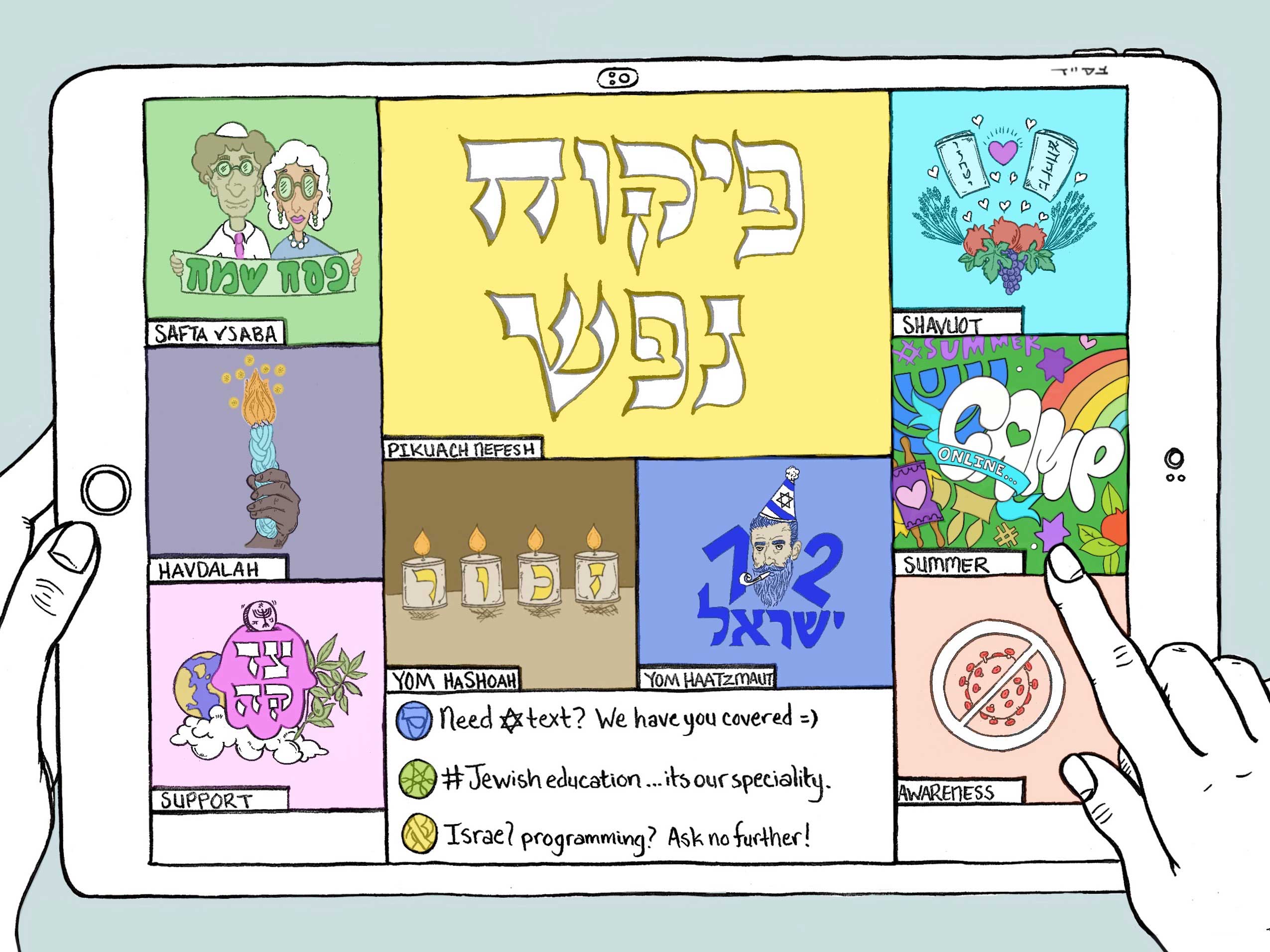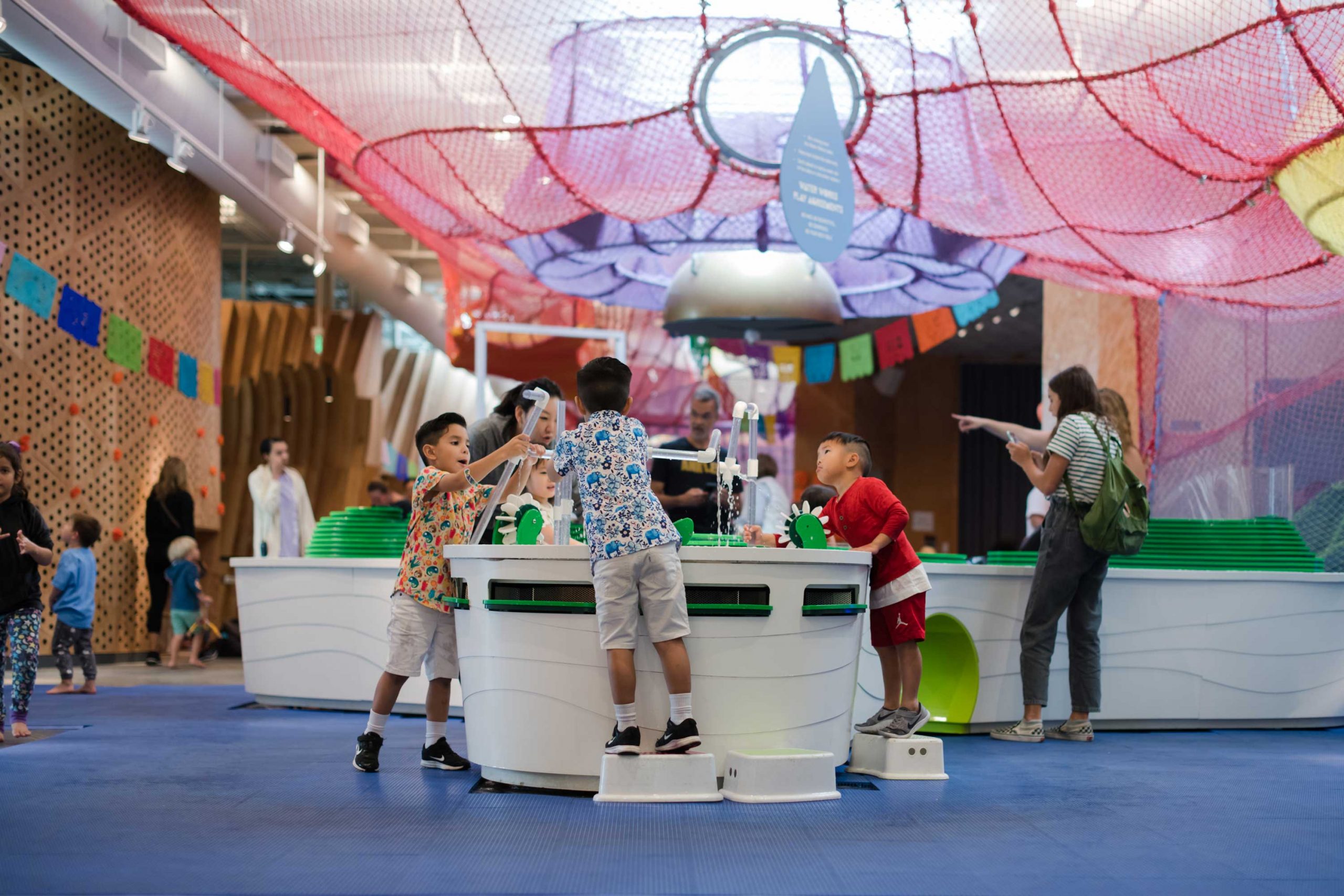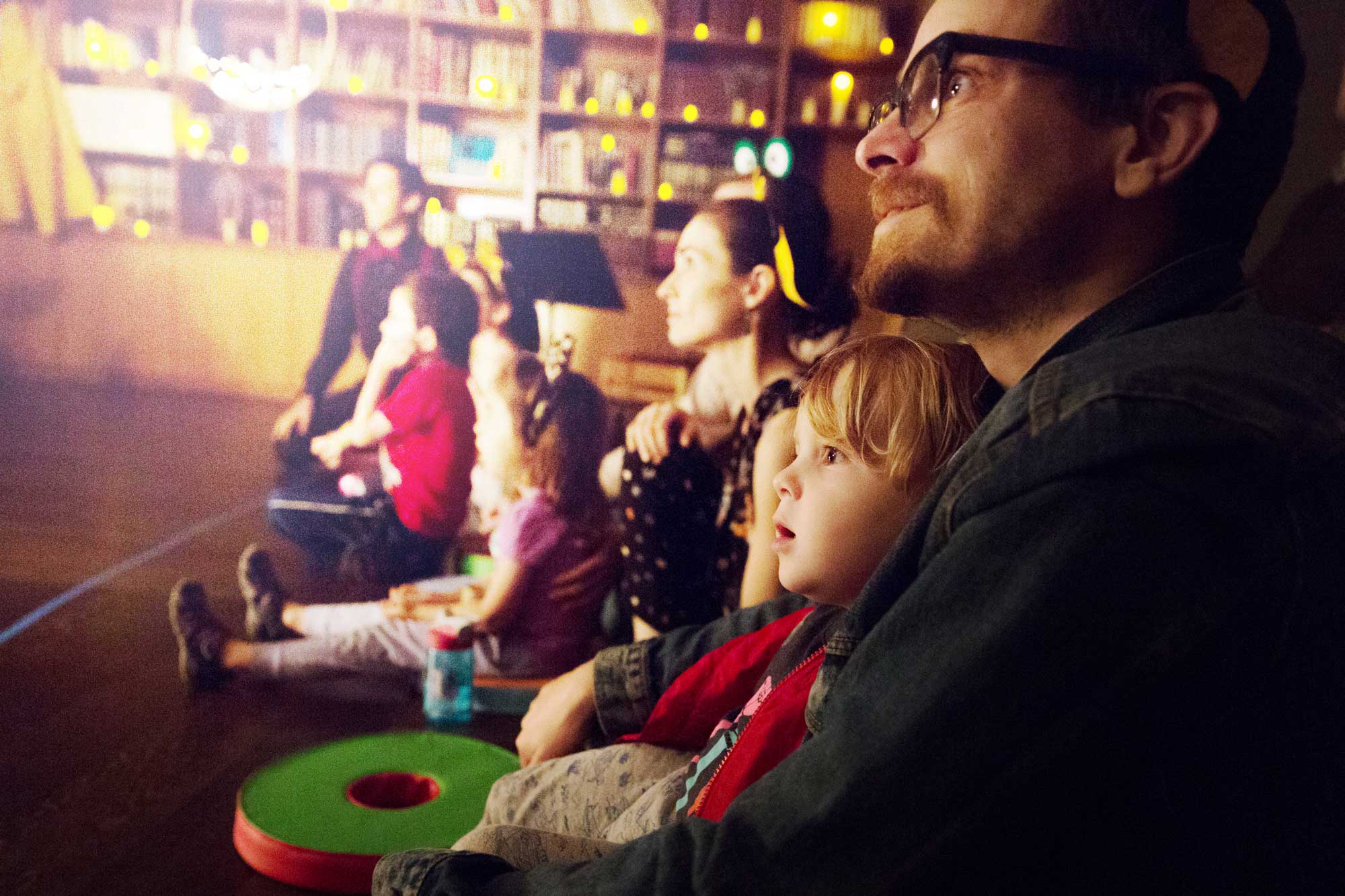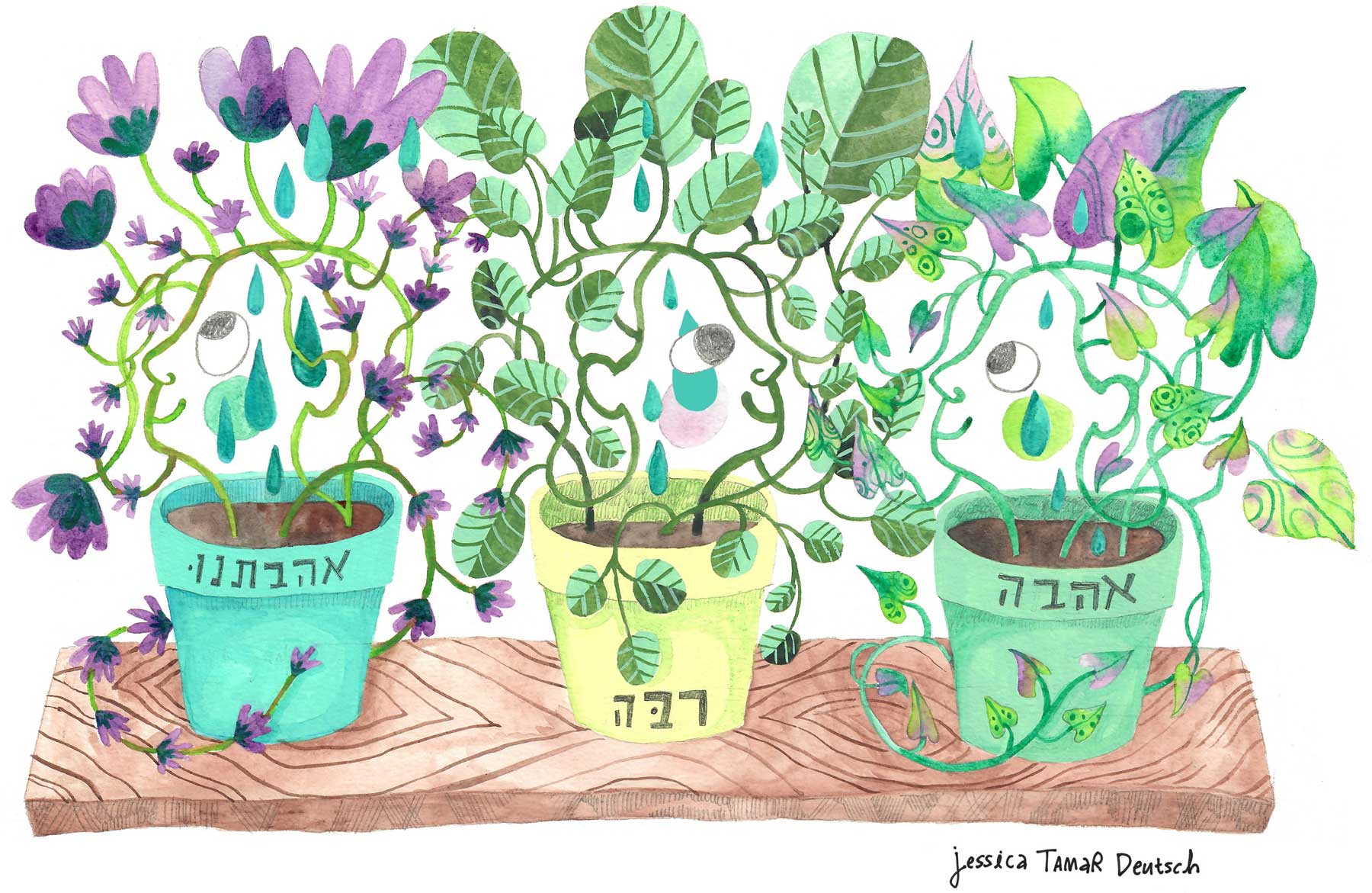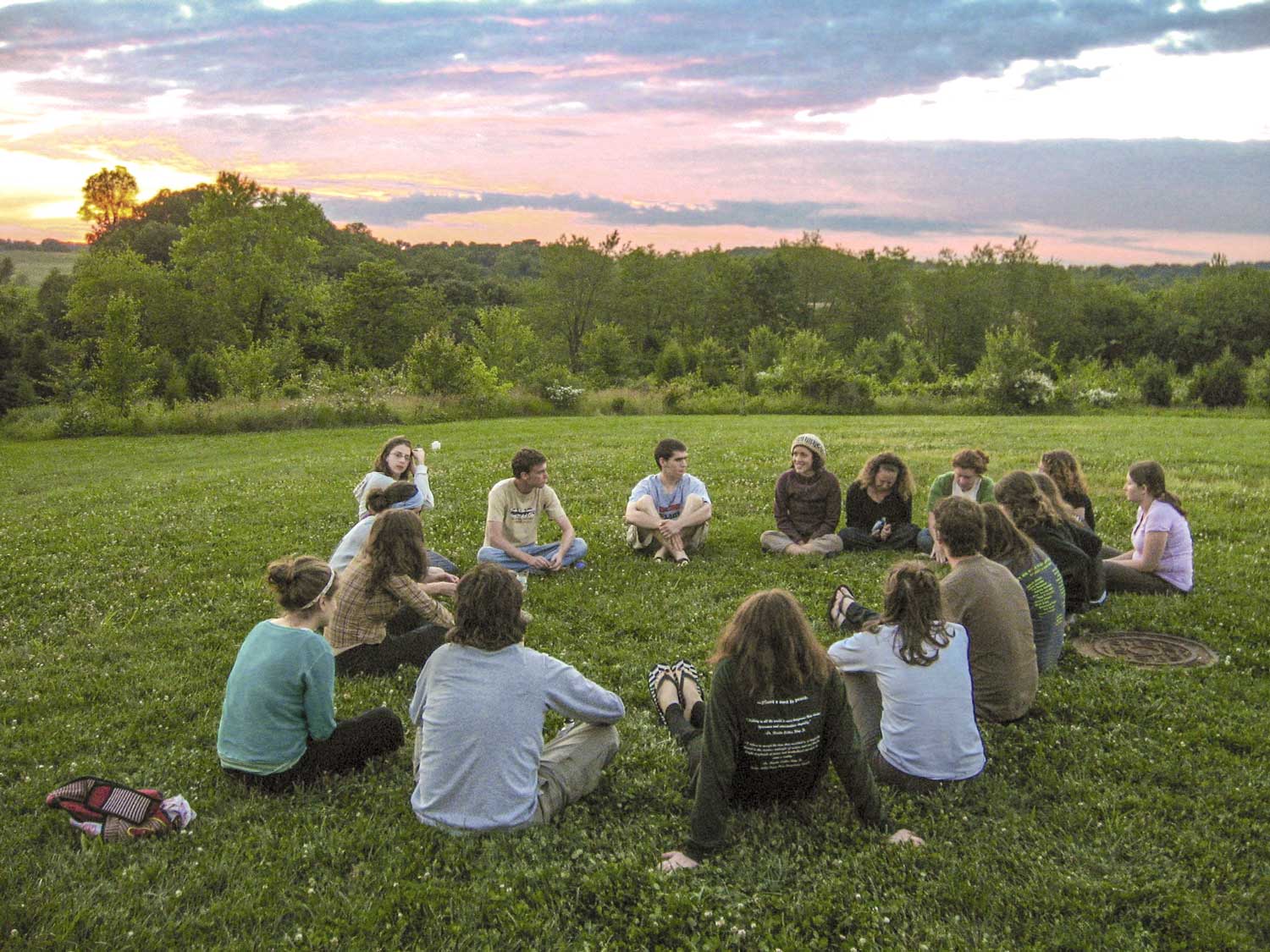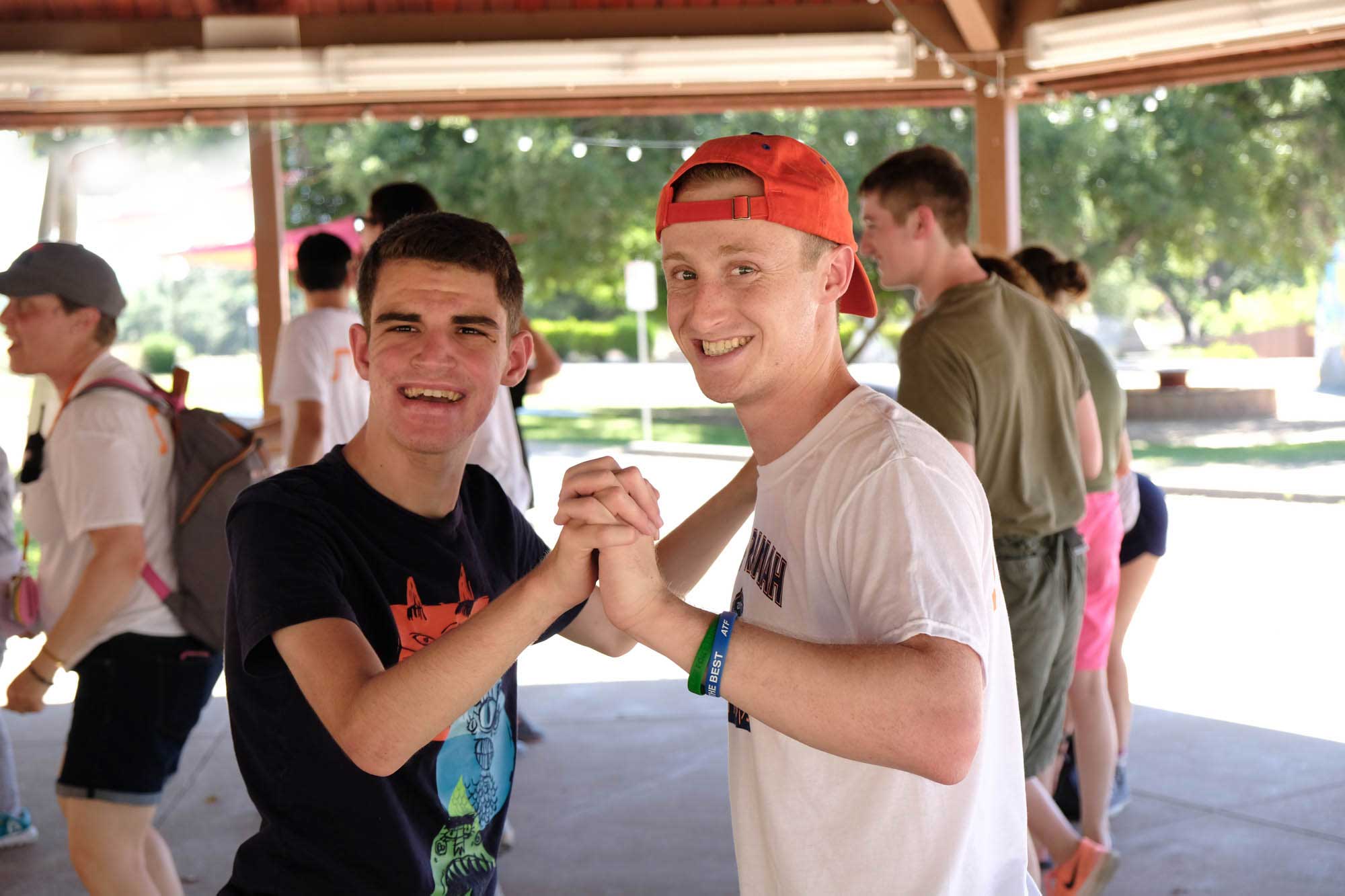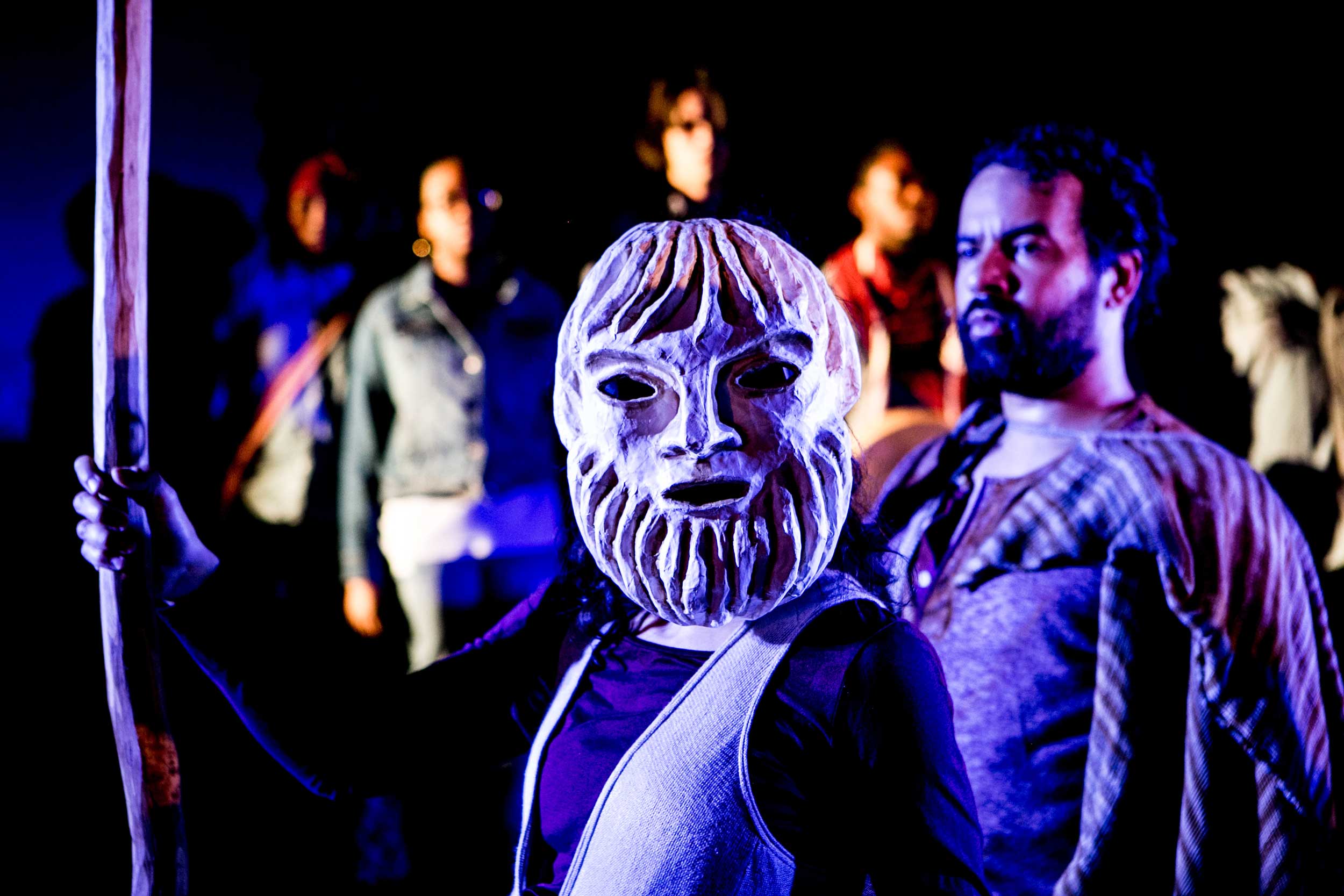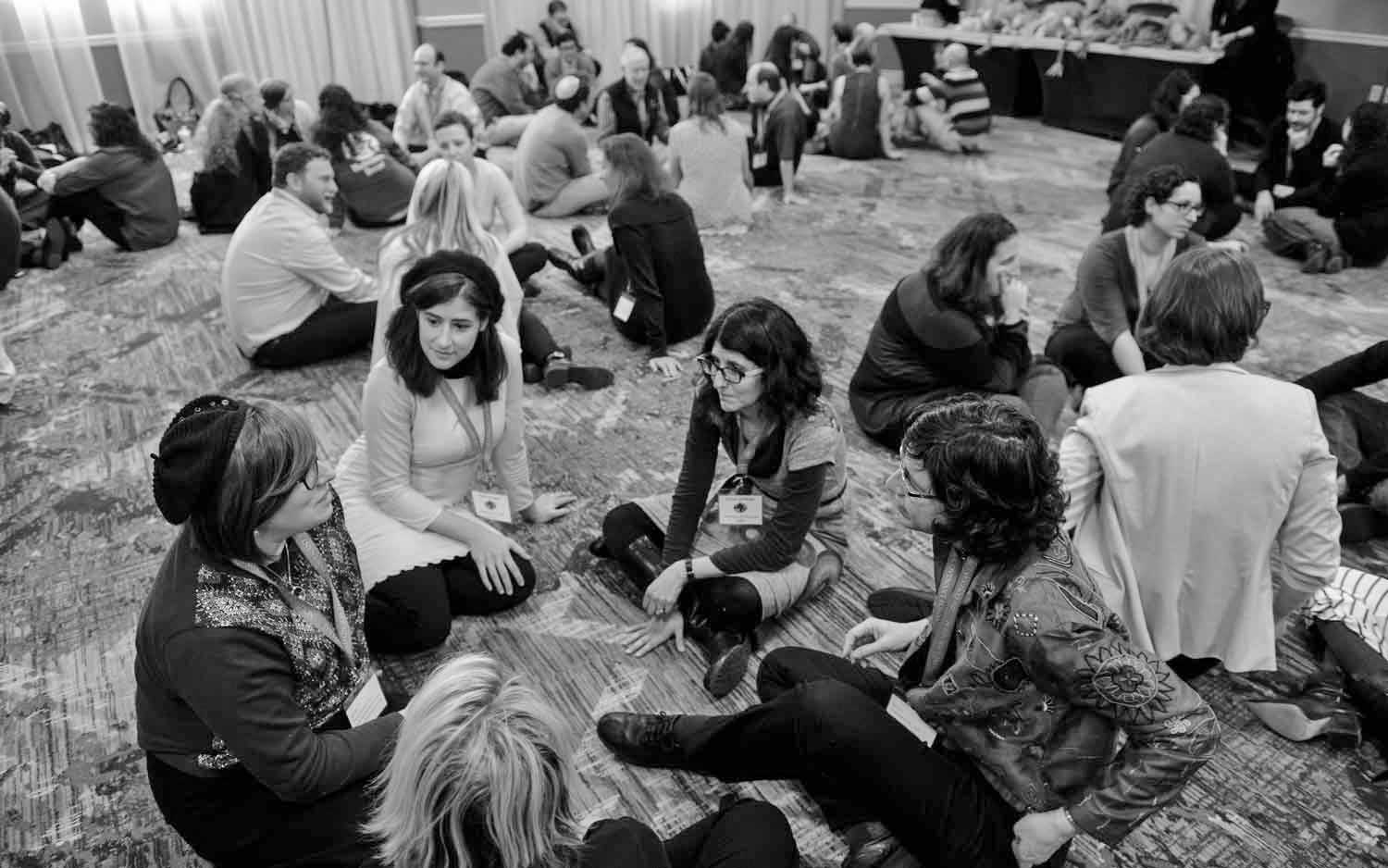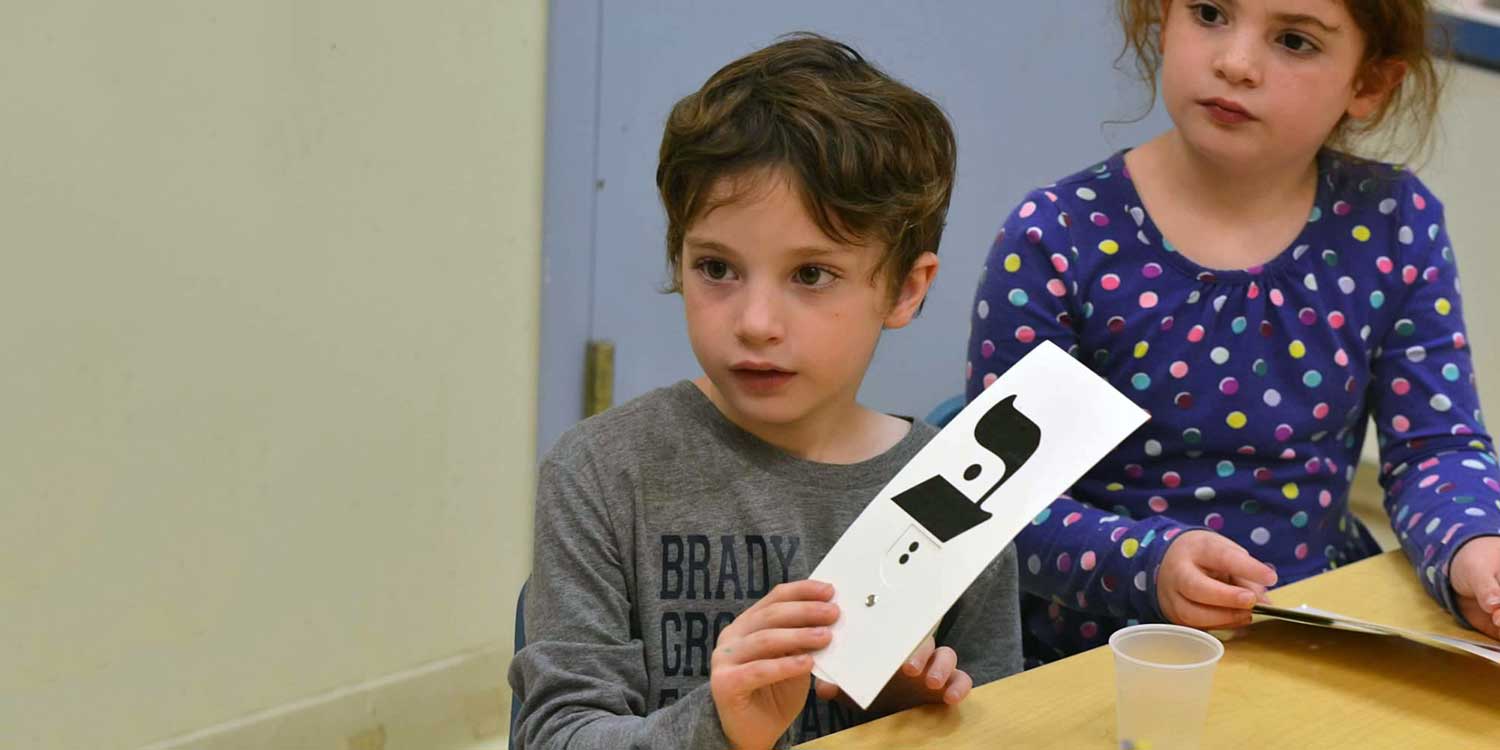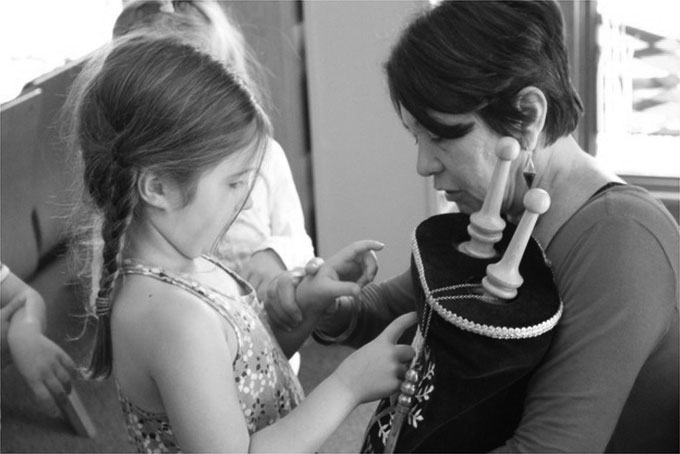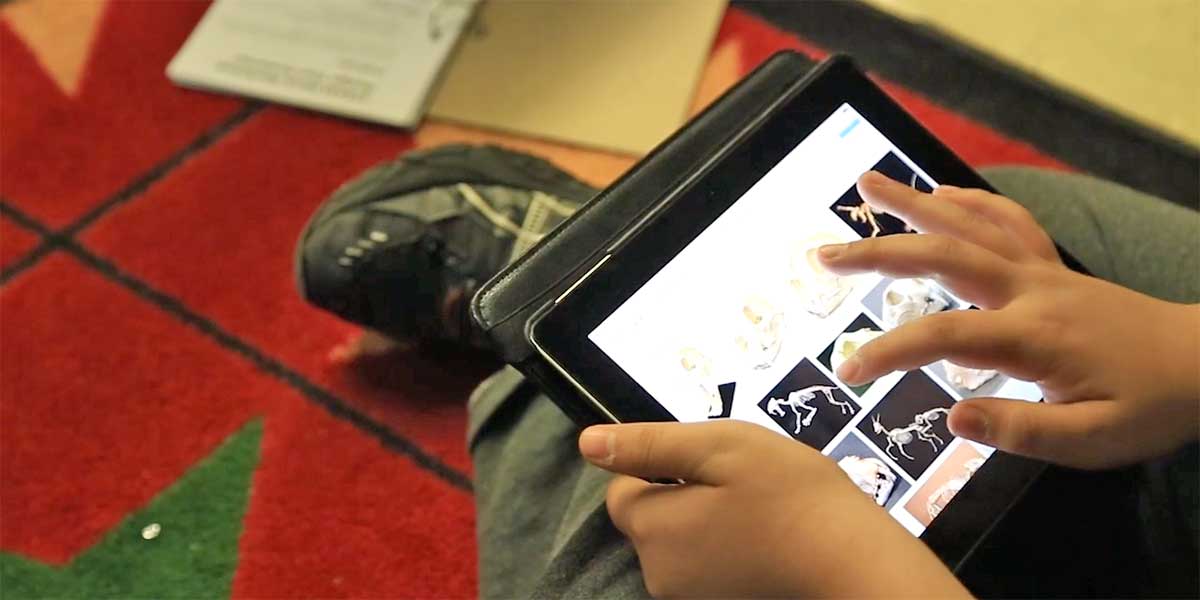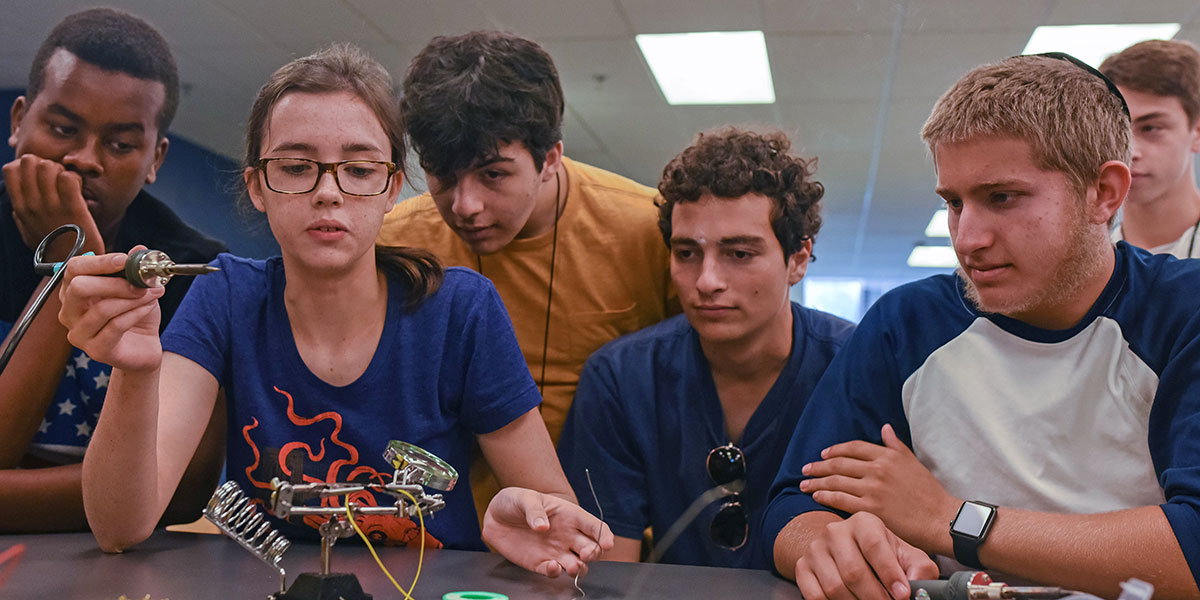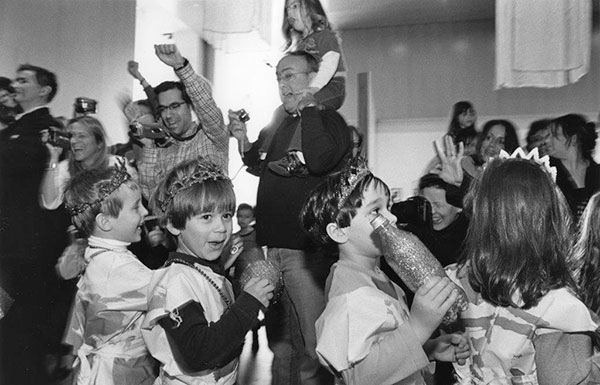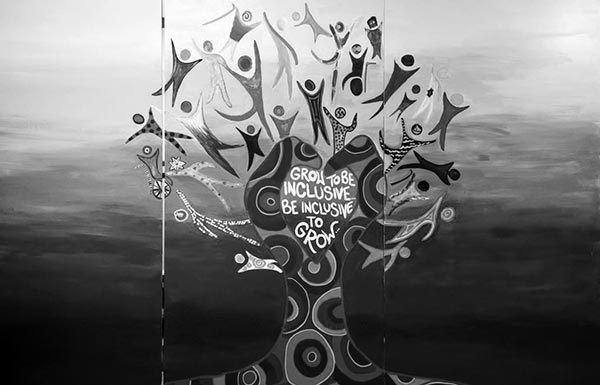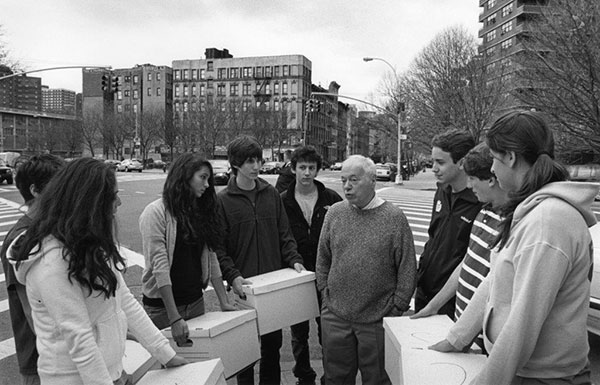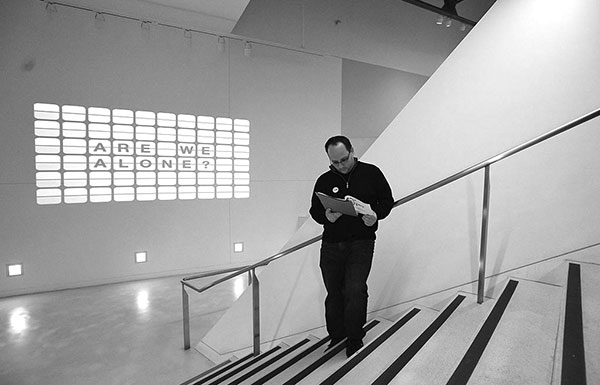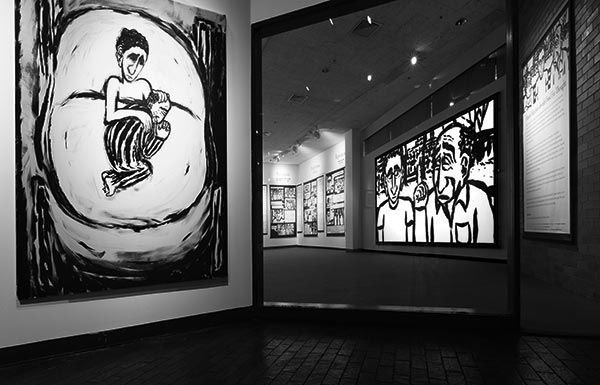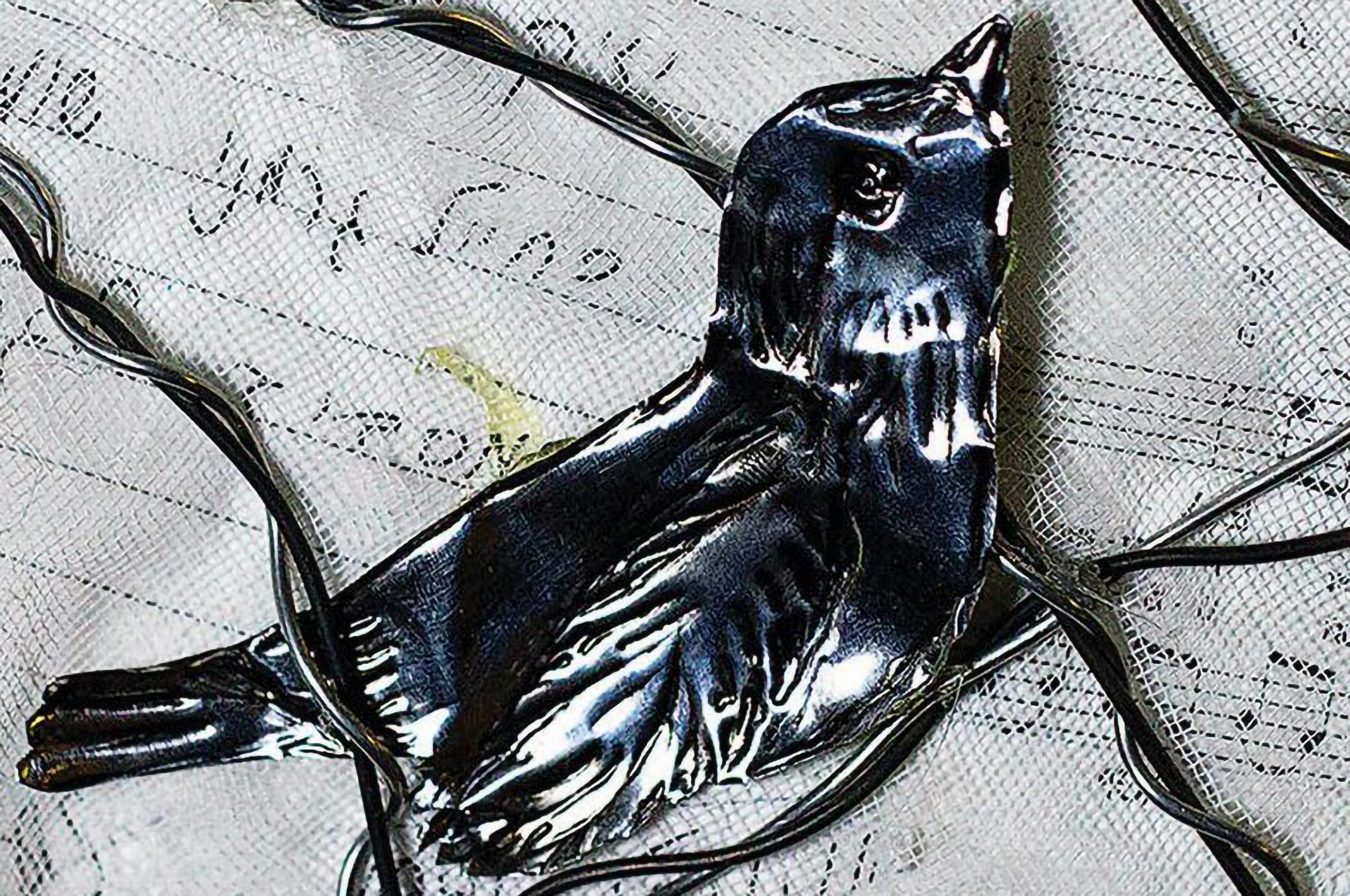
ARTICLE Pentimento, 18 Years of Teaching About the Importance of Family Stories
For 18 years, Barbara Rosenblit, a 2004 Covenant Award recipient and Jewish educator, taught young women to consider life stories as a road map.
“One of the goals of this project has always been not to necessarily be inspired by other people’s lives but to be aware of them, and to understand, by learning of their ups and downs, that life is complex, and while your life is something you craft for yourself, stories can help to direct us, and help us choose how to navigate our own lives.”
The project Rosenblit is referring to was borne of a course she taught to juniors and seniors at The Weber School in Atlanta, GA for nearly two decades, called Addressing Women’s Lives. In this interdisciplinary course, students engaged in a year of studying the history of Jewish women in America, identified and interviewed a Jewish woman 75 years or older, and then created a mixed-media work—using embroidery hoops, lamps, vintage handbags, hats, place settings, shadow boxes, and many other objects—that reflected something students learned about each woman’s life.
At the end of the course each year, the students displayed their work in a public exhibition housed within the Weber School’s art gallery.
[Read more about Rosenblit’s work in Sight Line: The Covenant Classroom, 2015.]
“One of the reasons I think this project was as successful as it was, is that it had a visual element to it,” Rosenblit reflected, commenting on the public exhibition that was the culmination of the course each spring. “There’s something about adding a visual presentation that gave us access to a much wider audience to which we could share about the lives of women, and this also raised the bar for our participating students. In today’s day and age, to not take a ‘selfie,’ but rather, to turn the lens on someone else, was transformative for our students.”
Now, upon her retirement from teaching, Rosenblit and her colleague, artist Sheila Miller, have captured those 18 years of stories and creations into a limited edition book, titled, fittingly, Pentimento, an Italian word that describes the process in art by which a composition shows the drawing or painting that has happened underneath it—so that when one observes the art, there are traces of the versions that came before. Their next steps also look towards documenting and expanding their curriculum and designing workshops for both teachers and adult groups.
“You have to collect the stories of those who came before you, and be aware of them and be curious about them,” Rosenblit said. “And in terms of the development of a teenager, understanding the ‘intergenerational self,’ and where one exists on the timeline of one’s own family, is essential to building core elements of one’s identity.”
Miller added that the interviewing process was done with extreme sensitivity, and many students walked away knowing things they hadn’t known before. “The students had a chance to think about what it meant to be an immigrant, or to lose family members, or to be a woman with a career in the 1930’s,” she said. “Elements of a life that many of today’s high school students wouldn’t otherwise be able to imagine.”
One of the reasons Rosenblit and Miller decided to produce the book, was because they realized “the fragility of the pieces.” They understood that these stories their students had collected over the years needed to be documented in some permanent way.
“This is true about all of our stories,” Rosenblit said. “They need to be captured and held.”
Miller agreed. “Because family stories are ephemeral,” she said, “they disappear in a sense. But by giving them visual form, you also give the stories a bit of permanence. The bits and bobs and archival objects the students use in their presentation, the little mementoes, things found that were hidden in drawers or transcripts, are one way to bring the stories out, while also engaging young students in visual expression.”
When asked how this project relates to family education, Rosenblit was unequivocal:
“Learning the stories of those who came before you is essential family education,” she said.
She emphasized, too, that many students didn’t just interview those to whom they were related, but rather, in many cases, students interviewed with older women in their community with whom they had no connection prior to the project.
“This makes ripples out beyond the biological family, or the nuclear family,” she said. “This project expands the human family.”
By Adina Kay-Gross, for The Covenant Foundation
